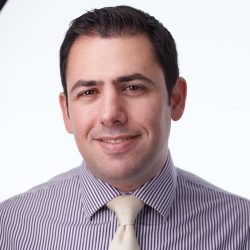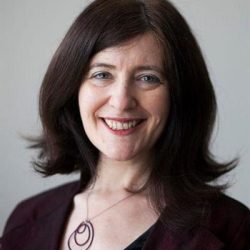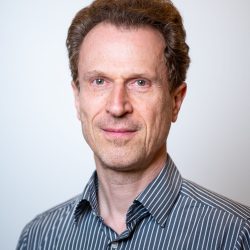Dan Dennett Symposium 2025 Speaker Bios

David Chalmers
David Chalmers is University Professor of Philosophy and Neural Science and co-director of the Center for Mind, Brain, and Consciousness at New York University. He is the author of The Conscious Mind (1996), Constructing The World (2010), and Reality+: Virtual Worlds and the Problems of Philosophy (2022). He co-founded the Association for the Scientific Study of Consciousness and the PhilPapers Foundation. He is known for formulating the hard problem of consciousness and for the idea of the extended mind.
 Anna Ciaunica
Anna Ciaunica
Dr. Anna Ciaunica is a Senior Researcher at the Group of Artificial Intelligence for People and Society (GAIPS) INESC-ID, Lisbon Portugal where she leads the Co-Embodied Self lab (CELab). Anna is also Honorary Research Associate at the Institute of Cognitive Neuroscience, University College London, the UK. Anna’s work focuses on embodiment and self-consciousness in humans and artificial agents from a developmental perspective. Anna’s research methodology is highly interdisciplinary, blending tools from philosophy of mind, cognitive neuroscience, experimental psychology, robotics and AI. Anna is currently PI on four interdisciplinary projects looking at the effect of interacting with artificial minds and bodies on the human self.

Felipe De Brigard
Felipe De Brigard is Professor in the departments of Philosophy and Psychology and Neuroscience, and the Center for Cognitive Neuroscience at Duke University. He is Principal Investigator of the Imagination and Modal Cognition Laboratory within the Duke Institute for Brain Sciences. He earned a BA from the National University of Colombia, a MA from Tufts University, and a PhD from UNC, Chapel Hill. Before arriving to Duke, he was post-doctoral fellow at the Cognitive Neuroscience of Memory Lab and the Center for Brain Science at Harvard University. His latest book is Memory and Remembering (Cambridge University Press).
Brian Epstein
Brian Epstein is associate professor of Philosophy at Tufts, specializing in social ontology, philosophy of social science, and social cognition. He is the author of The Ant Trap: Rebuilding the Foundations of the Social Sciences, winner of the Lakatos Award and the Gittler Award, Social Ontology (Cambridge Elements Series), and the Stanford Encyclopedia of Philosophy entry on Social Ontology. Epstein is also co-editor of the Oxford Handbook of Social Ontology and has published many articles on individualism, metaphysics, social groups, group cognition, and the relation between social ontology and social theory. He received his PhD from Stanford, MA from Oxford, and AB from Princeton.

Michael Halassa
Michael Halassa is a professor of Neuroscience and Psychiatry whose research focuses on cognitive control and flexibility. His lab has identified the first non-relay function for the thalamus: controlling cortical functional connectivity. This work has opened up a new line of research and provided fundamental insight into the neural basis of human cognition. His trainees have gone on to lead faculty positions at various institutions. Halassa has been consistently funded by the NIH, and has received several fellowships and prizes throughout his career. Most notably, the Vilcek Prize for Promise in the Biomedical Sciences (2017), a prize given to immigrants who have made extraordinary contributions to American society.

Gina R. Kuperberg
Gina R Kuperberg, MD PhD, is the Dennett Stibel Professor of Cognitive Science at Tufts University. She is also a Board Certified Psychiatrist and Principal Investigator in the Psychiatry Neuroscience Program at Massachusetts General Hospital. Her research program uses multimodal neuroimaging techniques (fMRI, MEG and EEG evoked responses, oscillatory activity, and Representational Similarity Analysis), neuropsychological testing and computational modeling to understand when, where and how the human brain builds meaning from language, and how these mechanisms break down in neuropsychiatric disorders such as schizophrenia.
 Michael Levin
Michael Levin
Michael Levin received dual B.S. degrees in computer science and biology, followed by a PhD in genetics from Harvard. He is currently distinguished Vannevar Bush Professor in the department of Biology at Tufts and the founding director of the Allen Discovery Center at Tufts, as well as co-director of the Institute for Computationally-Designed Organisms. His lab addresses fundamental questions about the nature and scaling of diverse minds in evolved, engineered, and hybrid environments. Using biophysics, computer science, and cognitive science, his team develops tools for communicating with cells and other minimal agents, towards applications in birth defects, regenerative medicine, cancer, and bioengineering.

Matthias Scheutz
Matthias Scheutz the Karol Family Applied Technology Professor of computer science in the Department of Computer Science at Tufts University in the School of Engineering, and Director of the Human- Robot Interaction (HRI) Laboratory and the HRI Masters and PhD programs. He has over 450 peer-reviewed publications in artificial intelligence, artificial life, agent-based computing, natural language understanding, cognitive modeling, robotics, human-robot interaction and foundations of cognitive science. His current research focuses on complex ethical AI-enabled robots with natural language interaction, problem-solving, and online learning capabilities in open worlds.
Susan Schneider
Susan Schneider directs the Center for the Future of AI, Mind and Society at Florida Atlantic University, where she holds the William F. Dietrich Distinguished Professorship in the department of philosophy and the Stiles-Nicholson Brain Institute. Before founding the Center, she held the NASA-Baruch Blumberg Chair with NASA and the Distinguished Scholar Chair at the Library of Congress. In her book, Artificial You: AI and the Future of the Mind, she discusses the philosophical implications of AI, and, in particular, AI consciousness and the enterprise of “mind design.” She is a co-director of the MPCR Lab at FAU’s new Gruber Sandbox, a large facility which builds AI systems drawing from neuroscience research and philosophical developments.

Holly A. Taylor
Holly A. Taylor received her bachelor’s degree in mathematics from Dartmouth College and her PhD in cognitive psychology from Stanford University. She is the Moses Hunt Professor of Psychology and co-director of Tufts Center of Applied Brain and Cognitive Sciences. She also holds a secondary appointment in Mechanical Engineering. Her research broadly focuses on applied cognition. She has explored, for example, the cognitive processes underlying navigation, STEM learning and visualization interpretation. She has also studied the impacts of stress, emotion, diet, and exercise on implicit and explicit cognitive processing.

